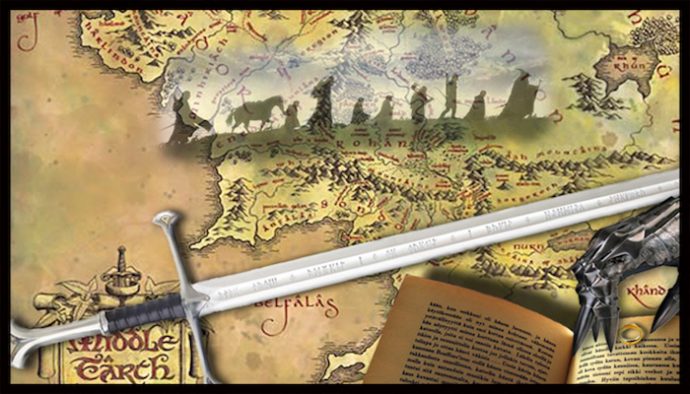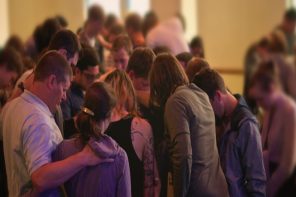In Tolkein’s classic The Fellowship of the Ring, the Lady of the Woods, Galadriel, says to Frodo the Hobbit:
“You are a ring-bearer, Frodo. To bear a ring of power is to be alone. This task was appointed to you. And if you do not find a way, no one will.”
The statement stands in the shadow of Jesus for the Christian. Jesus, who prayed in the garden that if there was a way, some other way, than for Jesus to bear the weight of sin, then let it be so. But the answer came back from the Father to the Son. This is a task appointed for Him alone. There was no other option. God, in His providence, had decided it would be so.
And so Jesus courageously, resolutely, agreed, and He bore the crushing weight of sin. He, and He alone did this. And He did it for you, and for me.
Because Jesus bore our sin, we can live in the glorious freedom of being in right standing with God. We can day by day live with the full knowledge that we are the righteousness of Christ, untainted by sin, and welcome into the family of God. Amazingly, mysteriously, even today when you and I sin, for indeed we will, we can know that Jesus has already born that sin as well.
Once and for all. It is finished.
But there is another result that comes from Jesus bearing our sin, not in part but the whole. Namely, we can own our sin because Jesus bore our sin.
Owning our sin is not the same thing as bearing our sin. It is not feeling a sense of condemnation for the sinful acts we still commit. Nor is it trying desperately to earn our way back into God’s good graces. Jesus has taken care of those things already. Instead, owning our sin means acknowledging our sin without self-justification or equivocation.
This is why someone like Paul could freely and without condemnation fully own the facts of his past, which he did regularly in his writing:
“For we are the circumcision, the ones who serve by the Spirit of God, boast in Christ Jesus, and do not put confidence in the flesh—although I once also had confidence in the flesh. If anyone else thinks he has grounds for confidence in the flesh, I have more: circumcised the eighth day; of the nation of Israel, of the tribe of Benjamin, a Hebrew born of Hebrews; regarding the law, a Pharisee; regarding zeal, persecuting the church; regarding the righteousness that is in the law, blameless” (Philippians 3:3-6).
He can own the fact that he had the wrong confidence. That he was insufferably proud of his own righteousness. That he was responsible for the persecution and death of Christians. He can own it because Jesus bore it, not in part but the whole. What does that ownership look like for us today? A number of things:
- It means we do not have to feel the need to offer a circumstantial explanation of why we were forced to do the wrong thing.
- It means we can freely apologize and ask for forgiveness without feeling the need to explain ourselves.
- It means we can humbly stand under the temporary consequences for our sin without feeling the need to escape.
It is a strangely beautiful thing to behold, a Christian who humbly acknowledges their sin and yet is not crushed by the weight of it. But such is the confidence of who knows they have been found, now and forevermore, in Christ and in Him alone.
Subscribe to MichaelKelley.co
Never miss a new post. Subscribe to receive these posts in your inbox and to receive information about new discipleship resources.




